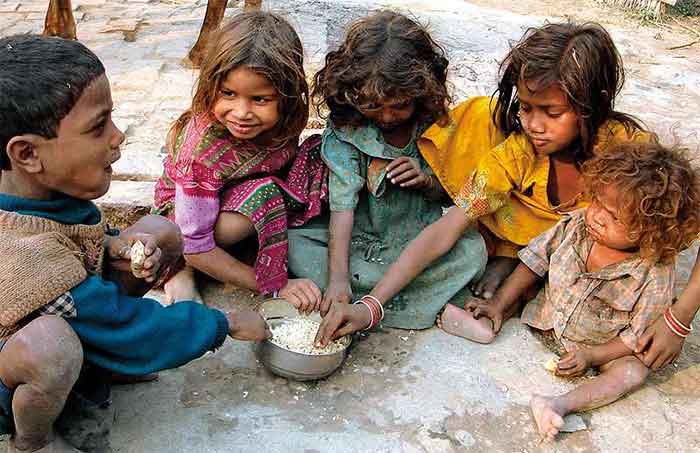
The World Inequality Report (WIR) is widely regarded as a highly credible and comprehensive report on the extent of inequalities in world. The latest WIR for year 2022 has been released very recently and this presents a damning indictment of the very high level of inequalities in India. As presented in WIR, the levels of wealth and income inequalities in India are among the worst that prevail in the leading countries of the world.
These statistics for wealth inequality tell us that the share of the bottom 50% of the households in wealth is just 6% in India. At the same time the share of the top 10% in wealth is 65% in India, a very high figure indeed. What is perhaps even more shocking is that the share of the top 1 per cent in wealth is a whopping 33%.
Coming now to income inequality the share of the bottom 50% in income is just 13% in India. On the other hand the share of the top 10% in income is 57% and the share of just the top 1% is as high as 22%.
Here it should be pointed out that the overall income levels in India are lower than in many other countries which have high inequality. Here the impact of inequality is likely to be seen much more in terms of denial of basic needs. For this reason, although reduction of inequality is needed everywhere, it is needed much more in countries like India where its impact in terms of denial of basic needs is much higher.
WIR has also drawn attention to the shameful reality that the inequality levels in India are returning to the very high levels seen in colonial times.As is well known, British rule was based on many-sided injustice and inequality and this was reflected in the very high level of inequalities existing at that time. As the WIR has pointed out, these high inequality levels could be reduced significantly in the decades following the independence of the country. However inequalities started increasing again in the decade of the 1990s due to the new distorted economic policies of the government. These distorted policies and the accompanying inequalities kept getting aggravated with the passage of time, particularly the more recent times. It is really a very shameful reflection on the development and economic priorities followed by the ruling regimes that inequalities are now returning almost to the situation existing in colonial times. Surely it is time to check this shameful trend and take strong steps to reduce inequalities.
Lastly, the WIR has also noted that the quality of data needed to monitor inequalities has deteriorated in recent times. Earlier India used to be known to have some of the best statistical systems among developing countries. So the new strategy of the ruling classes appears to be to reduce access to the kind of information that can reveal the increasing inequalities, exploitation and injustices in India. It is really sad and tragic that so many freedom fighters made the greatest sacrifices for the freedom of India, but as we move towards the 75 years of independence the inequality levels are going back to the years of colonial times. Surely something needs to be done to change this shameful reality.
Bharat Dogra is Honorary Convener, Campaign to Save Earth Now. His recent books include Protecting Earth for Children and Man Over Machine ( Gandhian ideas for our times).
Related posts:
Related posts:
Views: 0
 RSS Feed
RSS Feed















 December 9th, 2021
December 9th, 2021  Awake Goy
Awake Goy  Posted in
Posted in  Tags:
Tags: 
















